Premium Only Content

(8) The Character of Truth
https://www.facebook.com/groups/974332723871967/permalink/1045165073455398/?mibextid=rS40aB7S9Ucbxw6v
Chapter 8: The Character of Truth
What do I know about truth? When I am honest, I acknowledge the fundamental truth that all complete statements about external reality are either true or false. When I am dishonest, I attempt to disprove this truth by citing false counterexamples involving meaningless statements and incomplete statements.
A complete statement about reality is like a piece of evidence that exonerations the honest person and convicts the dishonest person of perjury. A complete statement about reality is a pass or fail test that a dishonest person fears taking. A complete statement about reality is a well written contract that reality has already chosen to either sign or to rip apart.
A complete statement about our external reality is either true or false. A complete statement has all of its significant terms clearly defined, its conditions clearly specified, and its range of precision clearly delineated. A complete statement about reality must either be consistent with our external reality or conflict with our external reality. A complete statement about our external reality is true if it is consistent with the existence of reality. A complete statement about our external reality is false if it conflicts with the existence of our external reality.
A complete statement that is consistent with our external reality is true even if we have not yet verified it. (Example: “I was born in the United States in the year 1987”. This statement is true even if you doubt that it is true.). A complete statement that conflicts with our external reality is false even if we have not yet verified it. (Example: “When I was born, the cells in my body did not contain any Y-chromosomes”. This statement is false even if you doubt that it is false). A complete statement about reality that is true is still true even the evidence is unavailable or misleading. A complete statement about reality that is false will still be false even if the evidence is unavailable or misleading. If I changed the year I was born on my birth certificate to commit fraud, I would still be dishonest even if the evidence was unavailable or misleading.
https://www.smashwords.com/extreader/read/801094/26/the-war-against-truth
Would a complete statement that is consistent with our external reality still be true even if no one articulated the complete statement? Would a complete statement that conflicts with our external reality still be false even if no one articulated the statement? Can you think of why people might not want to make a complete statement about our external reality? What do you think would happen if people choose not to articulate complete statement about reality?
Meaningless statements are like a child who puts random letters together and wonders why it is not a word. A meaningless statement is like a road that travels in a circle and has no intersections. Meaningless statements are like a tourist in a foreign land who commits a crime and expects diplomatic immunity but receives the full penalty.
Meaningless statements are not about external reality. Complete statements about external reality are either true or false judged against the existence of external reality. Since meaningless statements cannot be judged against external reality, it is meaningless to call them true or false.
Meaningless statements can be irrational or trivial. An irrational statement contains at least one logical contradiction. (Example: “A three-sided rectangle has four corners”). Circular logic does not prove truth, but truth is still connected by logic. A trivial statement relates to statements that do not relate back to the external reality. (Example: “This sentence is false.”). Truth does not obtain its meaning from language, but language obtains its meaning from truth.
Do does your ability to construct meaningless statements invalidate the truth of our external reality? Does your ability to construct illogical statements invalidate the application of logic throughout our external reality?
An incomplete statement is like a contractor who demands full payment before the job is finished. When a person negligently misinterprets a complete statement, it is like a scoundrel who steals and burns the contract and then does not pay the contractor.
Incomplete statements contain significant details that are ambiguous. Complete statements have all the significant details clarified. Complete statements about external reality must either be true or false. Incomplete statements cannot be evaluated until all the significant details are first clarified. One set of assumptions might interpret the ambiguous details to create a complete statement that is true. Another set of assumptions might interpret the ambiguous details to create a different complete statement that is false.
https://www.smashwords.com/extreader/read/801094/27/the-war-against-truth
A statement is complete if the significant details actually have been clarified based on the intent of the author, the context of the writing, and other relevant evidence. When we are honest, we will objectively complete the statement using the relevant evidence and evaluate it to be either true or false. When we are dishonest, we will isolate the statement from the relative evidence and purposefully misinterpret the statement based on our subjective personal preferences.
Do you think it is possible for you to write a complete statement that not even a dishonest person could not misinterpret? Do you think that it is possible to understand what you read if you ignore the intent of the author and the context of the writing?
How can my statements be incomplete? I can make incomplete statements by making them vague, conditional, or approximate.
A vague statement is like a movie whose ending can be interpreted in several different ways, so that the actual ending is not revealed until the sequel is made.
Vague statements have significant terms that have ambiguous definitions. Complete statements can be formed from vague statements by clearly defining the ambiguous definitions. A vague statement can arise from imprecision in a language. A person might also cleverly exploit these areas of imprecision as a strategic maneuver. (Example: “If you do not follow my directions, there will be consequences”. By not defining what the consequences are, the person is free to choose them later).
Vague statements can used deceptively as to avoid confronting truth or committing to a choice. A politician might deliberately use a term ambiguously to make a point with a friendly audience while escaping the criticism of a hostile audience. Vague statements can also be used to create the illusion of a threat or promise without any liability to fulfill it. An artist might also deliberately make a vague statement to encourage further discussion on that topic by creating a template for the audience to complete.
Why might you purposefully make a vague statement? When is it honest to make a vague statement and when is it dishonest to make a vague statement? Why might it be frustrating for you to debate people who only make vague statements?
https://www.smashwords.com/extreader/read/801094/28/the-war-against-truth
A conditional statement is like a novel without a setting, a play without a director, and a trial without judge or jury.
Conditional statement has conditions that are still ambiguous. Complete statements can be formed from conditional statement by clearly specifying the conditions. A conditional statement can arise when the author did not know how to address all the crucial conditions. (Example: “A carbon atom is stable”. If the carbon atom has 12 neutrons it is stable, but if the carbon atom has 14 neutrons it is unstable.).
Conditional statements can also arise when the author deliberately make a statement conditional. An instructor might deliberately make a conditional statement as a template for the audience to modify and complete. It may be that the instructor wants the audience to learn something by completing the conditions. It may also be that the number of possible conditions is so vast that it is more practice for the audience to determine them for their unique situation.
Why might you purposefully make a conditional statement? How might you accidentally make a conditional statement? Can you think of some statements are complete where there were no conditions that needed to be specified?
An approximate statement is like a farm animal that is allowed to roam free. An approximate statement a parent who answers “soon” to a child who keeps asking “are we there yet?”. An approximate statement is when a person is asked “where do you live?” and replies “Earth”.
An approximate statement has ambiguous limits. All measurements are an approximate statement until the upper and lower limits are specified. Complete statements can be formed from approximate statements by specifying the upper and lower limits. (Example: “There are 365 days in a year”. There are between 365 and 366 days in a year. There are about 365.25 days in a year which is why we have leap year every four years)
An approximate statement is usually used by an author who doesn’t know the level of precision, doesn’t care about the level of precision, or doesn’t want the audience to know the level of precision. A complete statement is more precise if the upper and lower limits are closer together. A complete statement is less precise if the upper and lower limits are farther apart. When a measurement less precise we usually round it to fewer digits or round it a more familiar number.
https://www.smashwords.com/extreader/read/801094/29/the-war-against-truth
Do you think that it is always more beneficial for a measurement to be more precise? What are some reasons you can think of that someone might not want to reveal the level of precision of their measurements?
https://www.smashwords.com/extreader/read/801094/30/the-war-against-truth
-
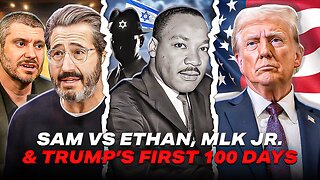 LIVE
LIVE
MyronGainesX
13 hours ago $18.04 earnedSam Seder Embarrasses Ethan Klein, The Truth On MLK's Murder, And Trump's First 100 Days In Review
2,248 watching -
 1:09:38
1:09:38
Man in America
9 hours agoEXPOSED: How Militaries Worldwide Are Engineering DEPOPULATION w/ Todd Callender
47.1K26 -
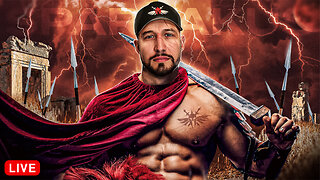 LIVE
LIVE
SpartakusLIVE
8 hours agoNEW Update, NEW Weapons, NEW META?!? || Quads in VERDANSK
244 watching -
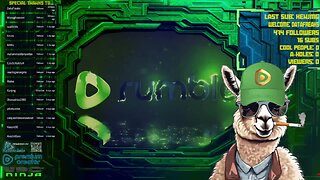
Jokeuhl Gaming and Chat
5 hours agoEmpyrion - Galactic Survival Long Range Jump Aquired
21K1 -
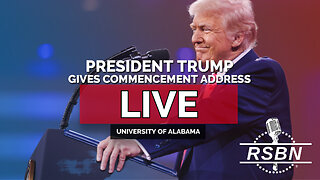 4:42:30
4:42:30
Right Side Broadcasting Network
1 day agoLIVE REPLAY: President Trump Gives Commencement Address at University of Alabama - 5/1/25
152K19 -
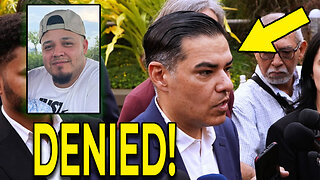 16:58
16:58
T-SPLY
11 hours agoDems’ Bad News: El Salvador Rejects Abrego, Democrats Fume!
81.3K56 -
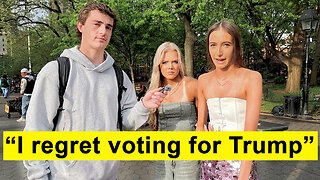 18:56
18:56
Nick Shirley
7 hours ago $3.23 earnedAsking People About Trump’s First 100 Days… How are Americans Feeling?
28.6K34 -
 4:21:02
4:21:02
NellieBean
5 hours ago🔴 LIVE - COD and Thunder!
10.3K1 -
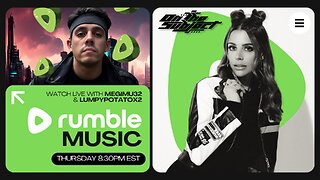 1:46:46
1:46:46
megimu32
6 hours agoON THE SUBJECT: Gaming, Beats & Rumble MUSIC with Lumpypotatox2 🎮🎶
30.6K7 -
 9:50
9:50
Melonie Mac
9 hours agoXbox raised their prices
19.5K30